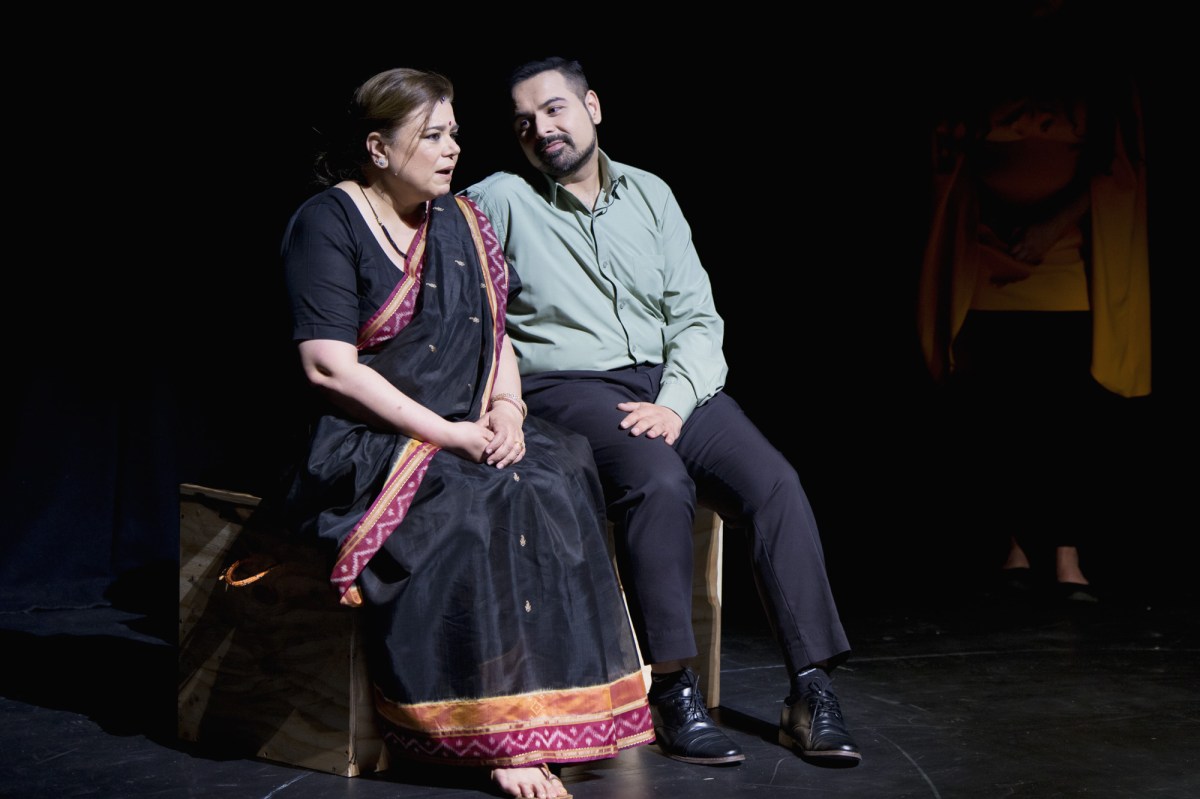Ten Years to Home marks the collaboration between Nautanki Theatre’s and KXT on Broadway in establishing a cross-city exchange between Parramatta, Western Sydney and Sydney city’s artistic centre. While the production is promising and has plenty of room for growth, it also pays rightful homage to the country’s South Asian and Indian population.
Under the direction of Neel Banerjee, Ten Years to Home charts the relocation of husband-and-wife duo Rushi (Taufeeq Sheikh) and Vasanti (Reema Gilani) to 1960s Australia as Gujarati migrant workers. In the present, their adult daughter, Sonal, played by Shabnam Tavakol, works alongside her parents to tell her own adult daughters, Radhika (Karina Bracken) and Evie (Madhullikaa Singh) the story of their family’s roots in the Land Down Under. Their grandparents, ‘Aaji’ and ‘Babaji’, fill in the gaps while Sonal takes the lead and brings her children up to speed.
It comes as a great surprise that Sonal’s character is entirely autobiographical, as is the rest of the play. Through close to 100 minutes of stage time and moving between the past and present, Moore makes space for diasporas everywhere and of every complexion, using theatre as a platform for the passing down of knowledge, stories and culture.
The range of Indian accents on the stage – varying in region, dialect and thickness – encapsulates the universality of the playwright’s chosen themes, not just to the incredibly rich subtext that belongs to the Indian nationality, but also to the uniqueness of every migration story; no two are ever the same.
Additionally, Moore’s writing should be commended and celebrated. Her balance of comedy and drama, particularly through her dialogue, is masterful.
“And the English thought the Indians were uncivilised,” Moore writes through Vasanti after Rushi’s hilariously detailed explanation of how a ‘dunny’ (and lack of septic tanks) works in 1960s Australia. A few scenes later, Moore uses the same characters to battle out the pros and cons of difference: emphasising how arbitrary it is to debate whether Australia and India are better than one another, as though both don’t come with inherent flaws and strengths.
While the set dressing used in this production is simple – consisting of five wooden crates arranged and rearranged across the show according to need – it is effective in allowing the performers traverse the stage. One of these crates, smaller than the others, becomes the resting place of the family’s primary photo album, which is opened early in the show and left open until its final scenes.
For diasporas, a photo album is much more than just a collection of images. It is a historical record of migration, of home afar and close by, and an avenue through which inheritance is claimed. As a poignant symbol, however, it is severely under-utilised. An odd gesture to or interaction with the album would have strengthened its significance to the storyline.
Frustratingly, the momentum and the maintenance of tension are problematic in Ten Years to Home. In some moments, the play moves in a slow burn, further drawn out by tinges of overacting, inconsistent volume and a lack of conviction in the emotional beats.
The nature of independent theatre with limited resources, support, funding and creative teams, may be the cause. Perhaps, in a world in which art and culture were viewed as more valuable, small-scale productions such as Banerjee’s would be better equipped to fine-tune the work to optimise its more technical aspects.
Read: Comedy review: Big Nose Big Dreams, Sydney Fringe Festival
Nevertheless, although this production needs further development, the cast performs to a well-integrated audience, with smiles on the faces of South Asian, Indian and white Australian faces right around the house.
Ten Years to Home
KXT on Broadway
Presented by Nautanki Theatre in association with bAKEHOUSE theatre
Director: Neel Bannerjee
Lighting Designer: Rajdeep Roy
Stylist Rajshri Roy
Graphic Designer Kamal Khajuria
Cast: Reema Gillani, Karina Bracken, Shabnam Tavakol, Taufeeq Ahmed Sheikh, Madhullikaa Singh
Ten Years to Home will be performed until 5 October 2024.





